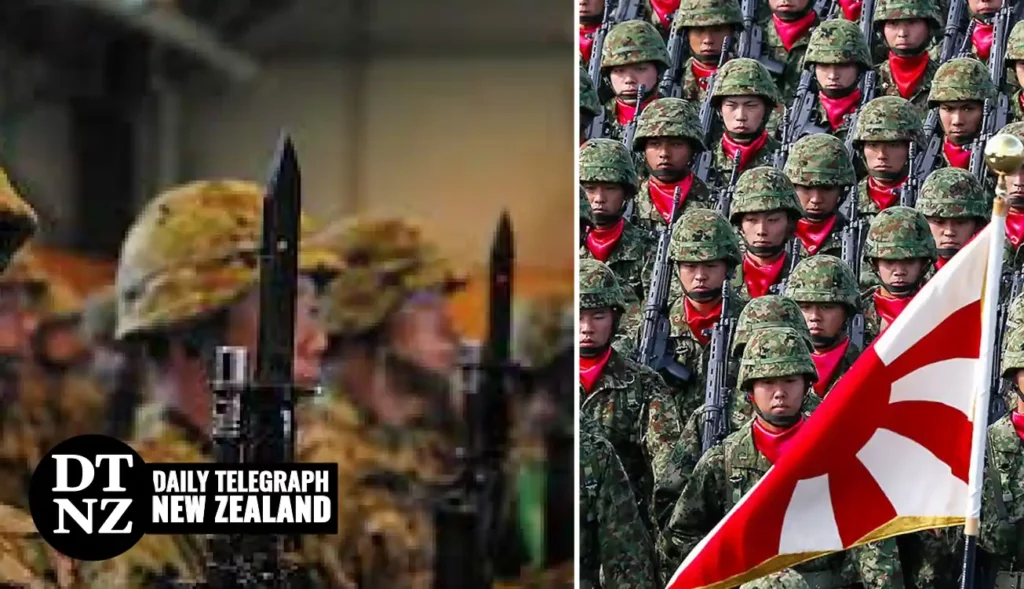Tokyo is working to assert itself as a global military power and could destabilize its entire region in the process.
Prime Minister of Japan Fumio Kishida commenced 2023 with a tour of G7 countries, having visited France, Italy, the UK, the US and Canada. Holding the Presidency of the US-centric group for this year, Kishida will host its summit in Hiroshima in May.
While a lot of his trips focused on preparing ground for the summit, Kishida notably signed scores of defence deals along the way, showing how the visit ties in with Japan’s ultimate ambition right now: Rearmament.
Since the end of World War II, Japan’s military power has been limited by its constitution to be strictly defensive. The country renounced the right to settle disputes via armed conflict and ruled out having an army or fighting a war abroad. This has posed limitations on defence spending, but also made Japan reliant on the United States for its security. However, now these limitations are all but defunct, even if they still exist on paper. Tokyo has the well-equipped Japan Self-Defense Forces, effectively a standing defensive army, and has recently pledged to double its defence spending by 2027 and to attain “second strike” capabilities with an eye on both China and North Korea, spurring on a regional arms race.
In 2022, former Prime Minister Shinzo Abe was assassinated. While he passed away, his ideas of Japanese military revisionism remained. The climate of geopolitical competition in respect to the rise of China and North Korea’s nuclear missile program has served as a platform for Japan to effectively end its pacifist epoch. These changes have allowed the nationalist Liberal Democratic Party (LDP), despite unfavourable economic results for decades, to perpetually stay in power amongst its key coalitions and thus force through this revisionism, despite opposition from some members of the Japanese public.
While the United States has always seen Japan as the bulwark of its power-projection in Asia, a position it consolidated during the Korean War, it is now allowing Japan to “escape the leash” of its post-war military limitations, hoping it will help in the containment of China. The Biden administration has established a strategy of creating coalitions to target Beijing, such as for example, the Quad and AUKUS. The US aims to counter the rise of China through granting allies extended military capabilities and capacity that they did not have previously. Such as, for example, allowing Australia to gain nuclear submarines through AUKUS or, in this case, giving leeway for Japan to expand its military reach, such as building new air bases in Okinawa.
In doing so, Washington increasingly understands Japan as a critical asset in a Taiwan-related contingency with China, with Japanese territory being effectively 100 kilometers or so east of the island itself. Thus, Japan now recognizes the island as a critical variable in its own defence policy, because if Taiwan falls to mainland rule, Japan will be militarily ‘checkmated’ by China, which will subsequently change the balance of power in Asia against the US. A missile unit is now being built on a Japanese island close to Taiwan itself. While Tokyo does not officially recognize Taiwan’s independence and maintains a position of strategic ambiguity on the matter, its very close relations with the US and the fact that its constitution was amended in 2014 to allow for military action in defence of allies both increase the possibility of Japan directly intervening in a Taiwan conflict.
What is notable is how Japan is not just turning to the United States for its own military expansionism, but to other countries too. This includes deeper relationships with the UK, Canada and Australia, amongst others. For example, Japan will build a “next generation fighter jet” with the UK and Italy which will involve the use of AI. While it is clear that the United States is pushing its allies to work together to try and contain China, on the other hand such moves also set out how Japan is attempting to reassert its own strategic independence with a view to establishing itself again as a military power in its own right, something it has not attempted since the 1940s.
All this, however, brings a new dynamic of danger to Asia. First of all, in the geographic region of northeast Asia, Russia and China both see Japan as a potential military opponent, and will likely align greater in respect to this dynamic. Second, Japan’s militarism is escalating an already tense situation with North Korea, who, facing a stronger Tokyo, is motivated to increase its nuclear and ballistic missile capabilities, finding greater justification to do so. Third, the sentiment of anti-Japanese nationalism in China will rise, meaning tensions between the two will increase. And, finally, despite a common ally in the United States, what will South Korea do in the face of an increasingly stronger Japan? It may feel militarily dominated or isolated, which will also force the country to arm itself further amid a myriad of challenges. As such, the rearmament of Japan will have a massive destabilizing effect on Asia, and it’s something Washington is happy to see occur in order to retain its clout over the region.
